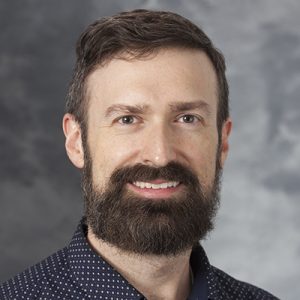
One of the lines of research that Division of Transplantation Assistant Professor Matthew Brown, PhD, is conducting focuses on developing regenerative medicine therapies that can treat or cure disease. Regenerative medicine is a field of research that uses stem cells and technologies such as gene editing to repair or replace damage that has occurred to the body’s cells, tissues, or organs. However, how the body responds to this repair is critical; after all, our immune system is designed to protect us from anything that it does not recognize and which could be potentially harmful. To counteract the immune response, Brown’s lab has developed a gene-editing technique that engineers “hypoimmune” cell therapies that can evade the immune system.
“We’ve developed a way to modify a specific type of protein that is found in human cells, called intercellular adhesion molecule-1, or ICAM-1. This protein plays a key role in activating the immune system, and it’s also used by a wide range of immune cells to bind to target cells that the immune system intends to destroy,” explained Brown. “If we can use gene-editing to essentially delete or ‘knock out’ ICAM-1, we can prevent immune cells from effectively binding to transplanted tissue or organs. The goal is to save the graft and avoid the need for the immune-suppressing medications that cause difficulties for some patients.”
Brown’s lab recently received a 14-month WARF Accelerator Award from the Wisconsin Alumni Research Foundation (WARF), the UW’s designated patenting and licensing organization, to continue this line of research. WARF Accelerator Awards provide resources for campus innovators who are developing technologies that are both commercially promising and provide innovative solutions to urgent issues. WARF’s funding will allow the Brown lab to carry out the next set of tests to verify the potential of this technology as a platform useful for a wide range of stem cell-based therapies. The research team will be testing their gene-editing strategy in a series of experiments relevant to different types of organs, including cells of the blood/blood vessels, pancreas, liver, and retina.
“Tremendous progress is being made in regenerative medicine research, and these therapies could not only provide new treatments options for diseases like type 1 diabetes but also one day reduce or altogether replace the need for donated solid organ transplants,” said Brown. “However, while they are promising, these therapies currently rely on taking drugs that suppress the immune system, and these drugs can have some severe side effects for some patients. The goal of our work is to gene-edit cells in a way that will avoid immune rejection without the need for immune-suppressing medications. I’m excited that WARF sees the potential of this technology and is an active and engaged partner with us as we continue to explore this line of research.”